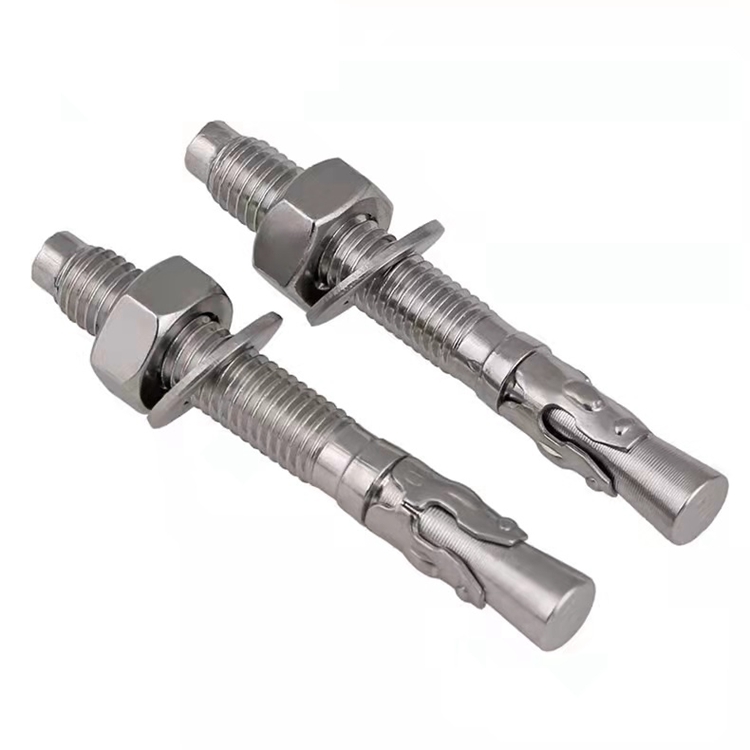Leading Manufacturer of Hexangular Head Stud Bolts for Diverse Industrial Applications and Custom Solutions
Jul . 28, 2024 16:24 Back to list
Leading Manufacturer of Hexangular Head Stud Bolts for Diverse Industrial Applications and Custom Solutions
The Importance of Quality in Hexangular Head Stud Bolt Manufacturing
Hexangular head stud bolts are essential components in various industries, ranging from automotive to construction, and even in the aerospace sector. As these fasteners are crucial for ensuring safety, reliability, and structural integrity, the role of manufacturers in producing high-quality hexangular head stud bolts cannot be overstated. This article delves into the various aspects involved in the manufacturing process and the significance of choosing a reputable hexangular head stud bolt manufacturer.
Understanding Hexangular Head Stud Bolts
Hexangular head stud bolts, commonly referred to as hex bolts, are characterized by their hexagonal-shaped heads, which allow for easy tightening and loosening with the appropriate tools. These fasteners typically consist of a length of threaded rod, making them ideal for high-stress applications where they can provide exceptional clamping force. Due to their versatility, hexangular head stud bolts are used in machinery, structural frameworks, and even in critical safety applications.
The Manufacturing Process
The manufacturing process of hexangular head stud bolts involves several key stages, ensuring that each bolt meets industry standards and specifications
. It begins with selecting the right materials, typically high-strength, corrosion-resistant alloys that can withstand the rigors of varying environments. The materials are then subjected to processes such as forging, machining, and surface treatment to enhance their durability and performance.After shaping the bolts, manufacturers often conduct rigorous testing to ensure that each product meets quality specifications. This may include tensile strength tests, hardness tests, and fatigue tests. Advanced manufacturing techniques, such as heat treatment and surface coatings, may also be applied to improve the performance of the bolts further.
hexangular head stud bolt manufacturer

Importance of Quality Assurance
Quality assurance is vital in the manufacturing of hexangular head stud bolts. Bolts that do not meet stringent quality standards can lead to catastrophic failures in applications where they are utilized. For instance, in automotive applications, a failure of a single fastener can result in a vehicle malfunction, potentially causing accidents. Similarly, in construction and structural applications, compromised bolts can lead to structural failures, endangering lives and causing severe financial losses.
Reputable manufacturers implement comprehensive quality control systems throughout their production processes. This ensures consistency and reliability in their products. Additionally, ISO certifications and compliance with industry standards can provide customers with the assurance they need regarding the integrity of the hexangular head stud bolts they are purchasing.
Customization and Innovation
The manufacturing landscape is continually evolving, with advancements in technology enabling manufacturers to innovate and customize their products to meet specific customer needs. Many hexangular head stud bolt manufacturers now offer customized solutions, such as unique dimensions, materials, and coatings tailored for specific applications. This customization is particularly valuable in industries that have specific requirements for fasteners, such as the aerospace industry, where weight and strength are critical.
Conclusion
In conclusion, the role of hexangular head stud bolt manufacturers is integral to the reliability and safety of countless applications across various industries. The manufacturing process, characterized by stringent quality control measures and a commitment to innovation, ensures that these critical fasteners meet the high standards expected by consumers. By choosing a reputable manufacturer, customers can have confidence that the hexangular head stud bolts they are utilizing will provide the necessary strength, durability, and reliability essential for their specific applications. Ultimately, investing in high-quality fasteners is not just a matter of compliance; it's about safeguarding lives and enhancing the performance of machines and structures across the globe.
Latest news
-
Reliable Axle Nuts Supplier | High-Quality Automotive Parts
NewsAug.19,2025
-
Premium Wire Bolts Suppliers | Durable & Reliable Fasteners
NewsAug.18,2025
-
Leading Metric Wood Screw Companies & Manufacturers
NewsAug.17,2025
-
Top Wire Bolts Suppliers - Quality & Durable Fasteners
NewsAug.15,2025
-
Trusted Wire Bolts Company | Quality Fasteners Supplier
NewsAug.14,2025
-
Reliable Wire Bolts Suppliers & Manufacturers for Global Needs
NewsAug.13,2025
